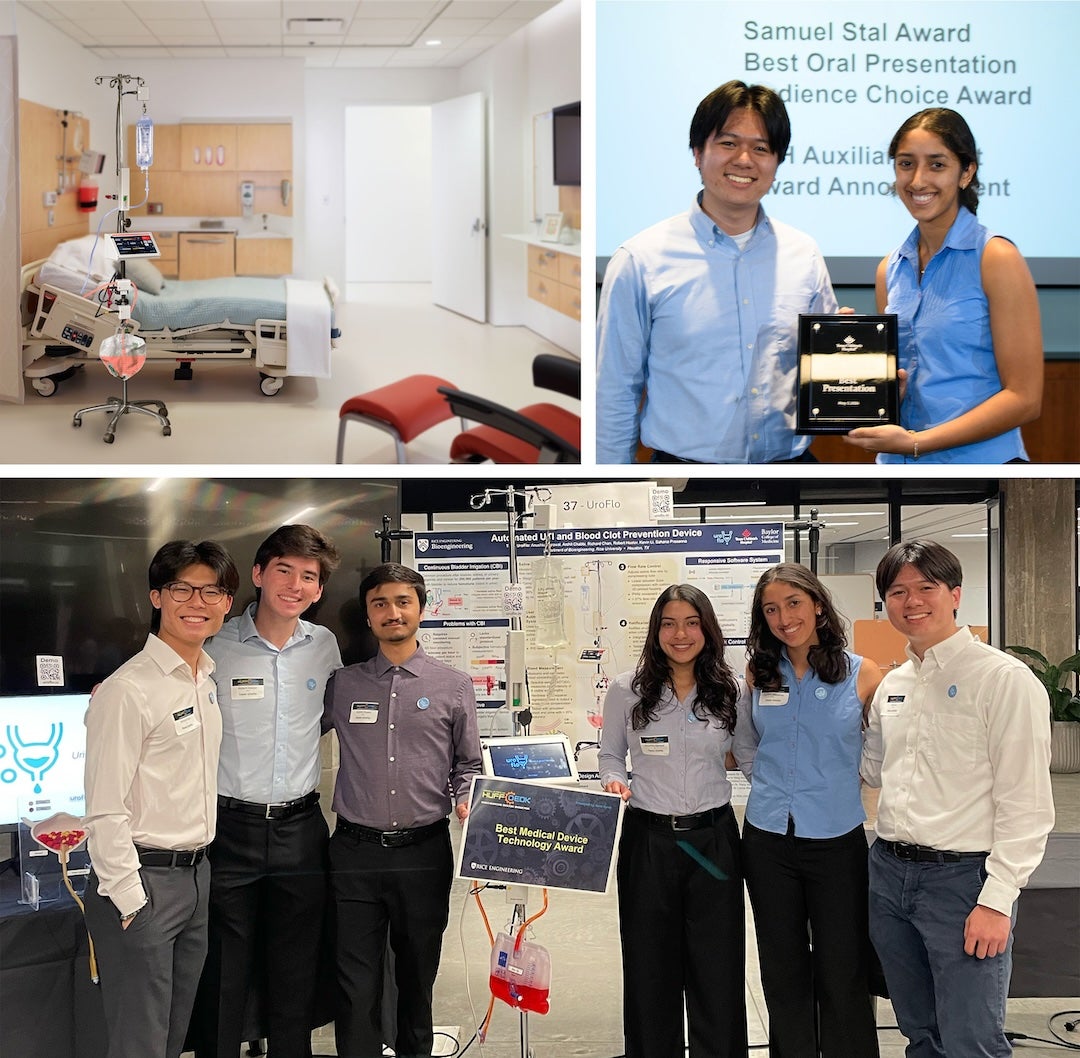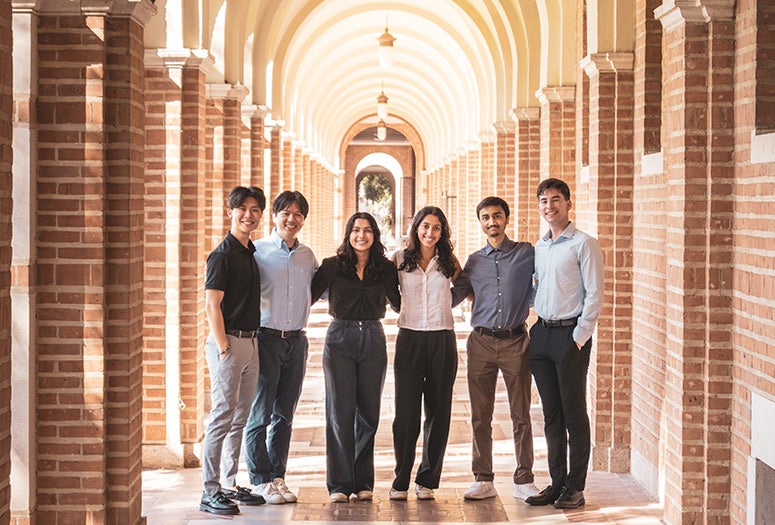A team of undergraduate students from Rice University was awarded the top prize in a prestigious national design competition for its innovative medical device for urological care. The students’ creation, UroFlo, has been recognized for its potential to revolutionize postoperative care and improve patient outcomes.

Organized by the National Institutes of Health (NIH) and the nonprofit organization VentureWell, the Design by Biomedical Undergraduate Teams (DEBUT) Challenge invites college students from across the country to tackle pressing health care issues with inventive technological solutions. This year’s competition was particularly fierce, with 85 applications from 48 universities, showcasing 362 talented students.
The winning team from Rice, consisting of Anushka Agrawal, Sahana Prasanna, Robert Heeter, Archit Chabbi, Kevin Li and Richard Chan, all 2024 graduates in bioengineering, took home the top award of $20,000 for developing an automated continuous bladder irrigation (CBI) system that provides comprehensive care to patients after surgery and reduces the burden on health care professionals with an intuitive design.
Their system implements state-of-the-art sensors and machine learning algorithms with a touchscreen user interface for robust data collection, processing and visualization. UroFlo promises to enhance the management of urinary tract infections (UTIs) and help prevent blood clots. The award will be officially presented on October 25 during the annual Biomedical Engineering Society (BMES) conference in Baltimore.
Dr. Chester Koh, a pediatric urologist and professor at Texas Children’s Hospital, Baylor College of Medicine and Rice, and executive director of the FDA-supported SouthWest-Midwest National Pediatric Device Innovation Consortium, said, “Engineering solutions like UroFlo help address unmet needs our pediatric specialists encounter in their day-to-day work with young patients. Our consortium has an established history of partnering with engineering teams at Rice on such projects, and this team’s success is a testament to just how critical such collaborations can be in improving patient care.”
In addition to Koh, team sponsors include Texas Children’s Hospital and Baylor College of Medicine physicians Dr. Sagar Patel and Dr. Raymond Yong.
Patel said that the device developed by the team of Rice bioengineering graduates could help streamline CBI protocols and really make a difference in patient outcomes.
“We hoped to revolutionize standard protocols for hematuria by integrating artificial intelligence to reduce health care costs, decrease waste, and ultimately, improve patient outcomes,” Patel added.
“CBI can be a very labor-intensive task that requires frequent monitoring and troubleshooting,” Yong said. “This can be a significant burden on health care providers and can cause serious morbidity if not managed properly.”

The Rice students’ medical innovation device features a sensor that accurately measures hematuria (blood concentration in the urine), autonomously optimizes the bladder irrigation flow rate in response to bleeding, and actively monitors the patient and overall procedure. Its user-friendly web interface allows medical professionals to access real-time data, manage alerts for abnormal conditions and oversee patient information remotely. A video about UroFlo is available here.
“We have learned so much from this process and we are really proud of what we have accomplished,” said Chabbi, speaking on behalf of the team. “It’s truly rewarding to know that our work can impact patients’ experience and help improve quality of care. Over the many hours we spent working in the Oshman Engineering Design Kitchen (OEDK) at Rice, we’ve not only developed an amazing set of skills, but have also forged really strong connections with one-another and the nearby medical community at the Texas Medical Center.”
“We are all very passionate about biomedical engineering, and dedicated and committed to making a difference. We actually decided to continue to develop UroFlo after our graduation from Rice a few months ago with the hope of improving our innovative solution for urological care,” said Chan.
Showcasing its potential application in real-world medical settings, UroFlo was recognized with an impressive number of additional awards this year, including first place in the Johns Hopkins Healthcare Design Competition in the Post-Surgical Infection Management category; first place in the American Society for Artificial Internal Organs Student Design Competition; “Best Medical Device Technology Award” in the 2024 Huff Engineering Design Showcase and competition held by the OEDK; “Outstanding Bioengineering Design Project,” Rice Department of Bioengineering; “Best Presentation” in the Texas Children’s Hospital Surgical Research Day; finalist and “Best Engineering Project” in Rice’s 2024 Shapiro Research Showcases; and semi-finalist in the H. Albert Napier Rice Launch Challenge.
“The number of awards UroFlo has won is a testament to the ingenuity and dedication of these students,” said team mentor Sabia Abidi, assistant teaching professor and director of bioengineering undergraduate studies at Rice’s George R. Brown School of Engineering. “Our students are driven by a passion to address critical health care challenges, and it’s inspiring to see their creativity and hard work recognized on a national stage.”

